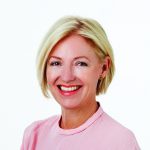Sufficient evidence shows that women with schizophrenia and related psychotic disorders have high rates of obstetric complications.1 These include an association with high rates of gestational diabetes, low and high birth weight babies, preterm delivery and increased risk of neonatal complications and hospitalisation. It is unclear what underlies this increased rate of complications in pregnancy and poor neonatal outcomes. While some attribution can be made to mental illness, equally important is the role of treatment and lifestyle factors. Many of the risks in pregnancy are also associated with poor lifelong outcomes for children.
In an attempt to understand the aetiology of severe psychotic disorders, there is now consensus that there is a multifactorial developmental risk pathway from genetic vulnerability, to environmental factors, to the final development of a psychotic disorder. While risk factors such as genetic vulnerability are unlikely to be modifiable, obstetric care and complications are a potential target for the future prevention of severe mental disorders. When managing a pregnant woman with a psychotic disorder, there is an opportunity to optimise maternal wellbeing and improve the health of the next generation.
Obstetric management
The obstetric management of women with psychotic disorders poses many challenges:
- The peripartum (antenatal, delivery and postpartum periods) can affect the course of the illness and alterations in treatment may be required
- Treatment that may be effective for the mother may be harmful to the unborn child
- Most psychotropic agents taken by the mother reach breastmilk, so their potential effects on the nursing infant need to be considered
- The mother may have physical illnesses associated with her psychotic illness
- There is a higher rate of cigarette smoking, drug and alcohol use, with risks to the unborn baby, including intrauterine growth retardation and preterm delivery
- The quality of the mother’s parenting may be compromised by her illness and social circumstances and may require detailed assessment.
- Ideally, consideration of these factors occurs pre-conception; however, like many women in the community, the rate of unplanned pregnancy is high. Mental health services are encouraged to consider principles of pregnancy management when treating any woman of childbearing age.
Given this level of complexity, the management of childbearing women with psychosis requires a multidisciplinary approach, integrating services from obstetrics, midwifery, psychiatry and social work.
Antenatal assessment
Universal screening measures, such as the Edinburgh Postnatal Depression Scale (EPDS), screen for depression and anxiety but do not detect psychotic disorders. As psychotic disorders are low prevalence but have potential implications for pregnancy, it is recommended that enquiry into past and current mental disorders becomes part of the routine antenatal assessment. Enquiry should include psychotic disorders and any current psychotropic medication, including antipsychotic medications.
Sample clinical booking questions:
- Have you ever had mental health problems?
- Have you been admitted to hospital for a mental health problem?
- Have you been prescribed medications such as lithium, mood stabilisers (for example, sodium valproate, lamotrigine or carbamazepine) or antipsychotics?
- Have you had mental health problems after having a baby?
- Has anyone in your family had mental health problems, including schizophrenia or bipolar disorder?
- Did your mother/sisters/aunts have any mental health problems after their babies were born? If so, were they admitted to hospital?
Drug, alcohol and smoking questions are incorporated routinely into screening, which should be culturally and linguistically appropriate.
Care pathways
Referral to specialist perinatal psychiatric services for assessment during (and preferably before) pregnancy should be considered for women with psychotic disorders. While not always possible, it is recommended that women deliver in large hospital settings with neonatal paediatric services on hand, including access to a neonatal intensive care unit.
Preconception
Ideally, women should be offered pre-conception counselling by a perinatal psychiatrist in order to carefully weigh treatment options. It is important to have an honest conversation about the paucity of good evidence around safety in pregnancy. It also provides an opportunity to discuss other lifestyle and physical health factors associated with the illness and medications. This may include consideration of exposures that can be modified (for example, obesity, smoking, alcohol and prescribed or illicit drugs).
Pregnancy
For many women with psychotic illness, discontinuation of prophylactic medication may pose a risk of relapse. After discussion with the woman (and partner or other family members) about the balance of risks and benefits to herself and the unborn baby of continuing versus ceasing the medications, many will opt for ongoing pharmacological treatment.
Medications include, broadly, two groups: typical antipsychotics, such as haloperidol; and atypical second generation antipsychotics, such as olanzapine, risperidone, quetiapine, aripiprazole and clozapine. They are administered orally or as long-acting depot medications given parenterally, fortnightly or monthly.
The latest National Perinatal Mental Health Guidelines for Australia recommend considering the use of antipsychotic medication for treatment of psychosis in pregnancy.2 Recommendations for monitoring use of these drugs in pregnancy3,4
include:
- Regular monitoring of full blood examination, urea and electrolytes, liver function tests, magnesium, calcium, folate, iron and vitamin D, ECG
- Regular weight and blood pressure checks
- Early glucose tolerance test at 16 weeks, particularly if on antipsychotic agents such as olanzapine, clozapine or quetiapine
- Close monitoring of fetal growth
- Neonatal assessment, including for extrapyramidal side effects
- Avoidance of pharmacological agents for lactation suppression
- Antipsychotic medication
Manufacturers of antipsychotic drugs warn against use in pregnancy. Clinicians must administer these agents, against licensed indications, according to the individual balance of risk-benefit to mother and baby with the available teratology databases, published research and national guidelines.5,6,7
The risks associated with antipsychotic treatments in pregnancy are based on limited research, often hampered by a lack of consideration of confounding variables such as obesity, smoking, alcohol and illicit substance use, all of which occur at high rates and increase risks in pregnancy. Currently, there is no clear association with increased risk of specific malformation, with the exception of a single study finding an association with risperidone and a small increase in risk.8 However, the overall number of studies across agents and participants is limited and any conclusions are cautious. There is no clear indication of an association with miscarriage. There is research to suggest an association with increased risk of gestational diabetes for specific antipsychotics, including olanzapine, quetiapine and clozapine.9,10 Studies have also found antipsychotic use to be associated with low and high birth weight babies, preterm delivery and poorer neonatal adaptation with higher rates of neonatal admission.11,12 The research into long-term child outcomes from exposure to antipsychotic medication in pregnancy is currently too limited to draw conclusions.
Clozapine is an antipsychotic associated with serious side effects, such as neutropenia, agranulocytosis and myocarditis. As a result, it has a mandated monitoring protocol and is usually reserved for treatment-resistant schizophrenia. With these associated risks, the national guidelines do not advise initiation of clozapine in pregnancy and advise only to use it with caution in breastfeeding with appropriate monitoring of the infant.13
The general principle is to choose the lowest effective dose of an agent and monotherapy over polytherapy where possible.14 Frequently, the decision is made to continue pharmacotherapy because the illness (psychosis and associated hospitalisation and suicidality) is of greater concern than the treatment. A careful review of the illness history, including associated risks such as suicidality, is helpful in making decisions around management.
Medication dosage
The dosage required to maintain plasma levels will likely vary across pregnancy, due to changes in hepatic metabolism and volume of distribution (particularly in the third trimester).
For management of acute relapse, reference to local hospital guidelines is important, as well as consideration of the specific conditions of pregnancy, such as avoidance of management in a supine position and the safety of agents in pregnancy.
Planning for delivery and the postnatal period
If there are doubts about whether a woman is capable of agreeing to obstetric interventions, the criteria for capacity need to be (re)examined; this should be done collaboratively by the obstetrician and psychiatrist. The assessment includes whether the woman is able to believe the information and weigh up advantages and disadvantages of procedures, (such as induction of labour and caesarean section), as part of the process of arriving at a decision. Even if a woman with psychosis is deemed to have capacity, her mental state may fluctuate and she may lose capacity later. If this is likely, an advance directive may be helpful.
Some women with psychotic disorders may be under a state Mental Health Act as an involuntary inpatient or on a community treatment order. If this is the case, understanding the processes for consent to treatment under the Act is important and communication with the treating mental health team is essential.
Paediatric input
The neonatal paediatrician should be informed of the woman’s psychotropic medications so that signs of neonatal toxicity, withdrawal or other complications can be managed.
Preparation for labour
The woman (and partner or carer) should be familiar with the early signs of labour and know what to do at its onset. If the psychotic illness is severe, obstetric and midwifery staff may find the presence of psychiatric nursing staff helpful during labour and after delivery.
Breastfeeding and early postnatal care
It is useful to agree on postnatal care in advance; a perinatal mental health care plan should be clearly documented in the medical file. Breastfeeding requires discussion before delivery, as does the possibility of elective or non-elective transfer to a psychiatric mother and baby unit (MBU) or mental health ward if no MBU is available. It should be noted that most psychotropic medications do transfer into breastmilk and many only have limited safety data.
Many women with a psychotic illness will lack confidence in caring for their newborn, have sleeping problems and require extra nursing attention. These women will benefit from a single room and a longer stay on the maternity ward. Insomnia may be a sign of recurrence of mania and sleep deprivation can be pivotal in the development of an acute episode of psychosis. Measures to maintain sleep may include use of a short-acting hypnotic medication or a sedative antipsychotic and the baby remaining in nursing staff care overnight during admission. Ideally, a psychiatrist will monitor the woman’s mental state closely and discuss her (and family members’) anxieties during the hospital stay. The risk of relapse in the early postpartum period is high and having a clear plan for monitoring, assessment and pathways to care, if required, is crucial to ensure safety for mother and baby. Use of pharmacological agents that suppress lactation should be avoided.15
Discharge
Ideally, the woman will have a collaborative perinatal mental health plan developed in pregnancy to include intrapartum and postpartum management. This includes care following discharge, such as follow-up psychiatric appointments, community mental health professionals, child health nurse and general practitioner. Health professionals should help the woman identify and reduce stress. Continued vigilance for early warning signs is vital. The woman and her partner (or carer) should ensure sufficient uninterrupted sleep, particularly in the first three months when she is most likely to become ill. A social worker may be involved to organise community support and, if required, coordinate involvement of child protective agencies.
Postpartum psychosis
Postpartum psychosis (PPP) is a reasonably rare illness (affecting about one in 1000 women), but potentially devastating for mother and infant.16 PPP may be the first presentation of mental illness, a recurrence of a chronic pre-existing illness, or may be an acute confusional state caused by delirium or other organic cause. It is important to exclude organic causes, including delirium, autoimmune encephalitis and other rare causes.17,18 If a woman has a previous history of PPP, there is a 50–60 per cent risk of relapse, if untreated.
Prompt psychiatric assessment is essential due to the risk of delusional beliefs leading to infanticide or suicide. A woman with a postpartum psychotic episode requires urgent psychiatric admission. Ideally, she will be admitted with her baby to a specialised MBU. This provides a safe treating environment, with supervised contact with her baby and support of her relationship with her baby as the woman improves.
The evidence-supported treatments for PPP are lithium and electroconvulsive therapy (ECT). Lithium is the gold standard treatment. However, most guidelines advise against breastfeeding with lithium, due to the risks of toxicity and potential complications for the baby.19
Advice for women who have a previous history of PPP, but no other episodes of serious mental illness outside the puerperal period, would generally be to initiate lithium immediately after delivery.20
Conclusion
Hopefully, growing awareness of the importance of the mental health of childbearing women with psychotic disorders will lead to improved care. There is an urgent need to further research the risks and benefits of treatment options, so we can improve models of care and ensure optimal outcomes for both mother and child.
References
- Galbally M, Snellen M, Lewis A. Psychopharmacology and Pregnancy:Springer;2014.
- Austin M, Highet N, Group EW. Effective mental health care in the perinatal period: Australian clinical practice guideline. COPE: Centre of Perinatal Excellence, Melbourne Google Scholar. 2017.
- Snellen M, Power J, Blankley G, Galbally M. Pharmacological lactation suppression with D2 receptor agonists and risk of postpartum psychosis: A systematic review. Aust N Z J Obstet Gynaecol. 2016;56(4):336-40.
- Galbally M, Snellen M, Walker S, Permezel M. Management of antipsychotic and mood stabilizer medication in pregnancy: recommendations for antenatal care. Aust N Z J Psychiatry 2010;44(2):99-108.
- Galbally M, Snellen M, Lewis A. Psychopharmacology and Pregnancy:Springer;2014.
- Galbally M, Snellen M, Power J. Antipsychotic drugs in pregnancy: a review of their maternal and fetal effects. Ther Adv Drug Saf. 2014;5(2):100-9.
- Austin M, Highet N, Group EW. Effective mental health care in the perinatal period: Australian clinical practice guideline. COPE: Centre of Perinatal Excellence, Melbourne Google Scholar. 2017.
- Huybrechts KF, Hernandez-Diaz S, Patorno E, et al. Antipsychotic use in pregnancy and the risk for congenital malformations. JAMA Psychiatry 2016;73(9):938-46.
- Gentile S. Pregnancy exposure to second-generation antipsychotics and the risk of gestational diabetes. Expert Opinion on Drug Safety 2014;13(12):1583-1590.
- Yoonyoung Park, Sonia Hernandez-Diaz, et al. Continuation of atypical antipsychotic medication during early pregnancy and the risk of gestational diabetes. American Journal of Psychiatry. Published online: 7 May 2018. Available at: https://doi.org/10.1176/appi.ajp.2018.17040393.
- Galbally M, Snellen M, Lewis A. Psychopharmacology and Pregnancy:Springer;2014.
- Galbally M, Snellen M, Power J. Antipsychotic drugs in pregnancy: a review of their maternal and fetal effects. Ther Adv Drug Saf. 2014;5(2):100-9.
- Austin M, Highet N, Group EW. Effective mental health care in the perinatal period: Australian clinical practice guideline. COPE: Centre of Perinatal Excellence, Melbourne Google Scholar. 2017.
- Galletly C, Castle D, Dark F, et al. Royal Australian and New Zealand College of Psychiatrists clinical practice guidelines for the management of schizophrenia and related disorders. Australian and New Zealand Journal of Psychiatry 2016;50(5):410-72.
- Snellen M, Power J, Blankley G, Galbally M. Pharmacological lactation suppression with D2 receptor agonists and risk of postpartum psychosis: A systematic review. Aust N Z J Obstet Gynaecol. 2016;56(4):336-40.
- Galbally M, Snellen M, Lewis A. Psychopharmacology and Pregnancy:Springer;2014.
- Galbally M, Snellen M, Lewis A. Psychopharmacology and Pregnancy:Springer;2014.
- Bergink V, Armangue T, Titulaer M, et al. Autoimmune Encephalitis in Postpartum Psychosis. Am J Psychiatry 2015;172(9):901-8.
- Galbally M, Bergink V, Vigod S, et al. Breastfeeding and lithium: is breast always best? Lancet Psychiatry 2018;5(7):534-6.
- Galbally M, Snellen M, Lewis A. Psychopharmacology and Pregnancy:Springer;2014.







Leave a Reply